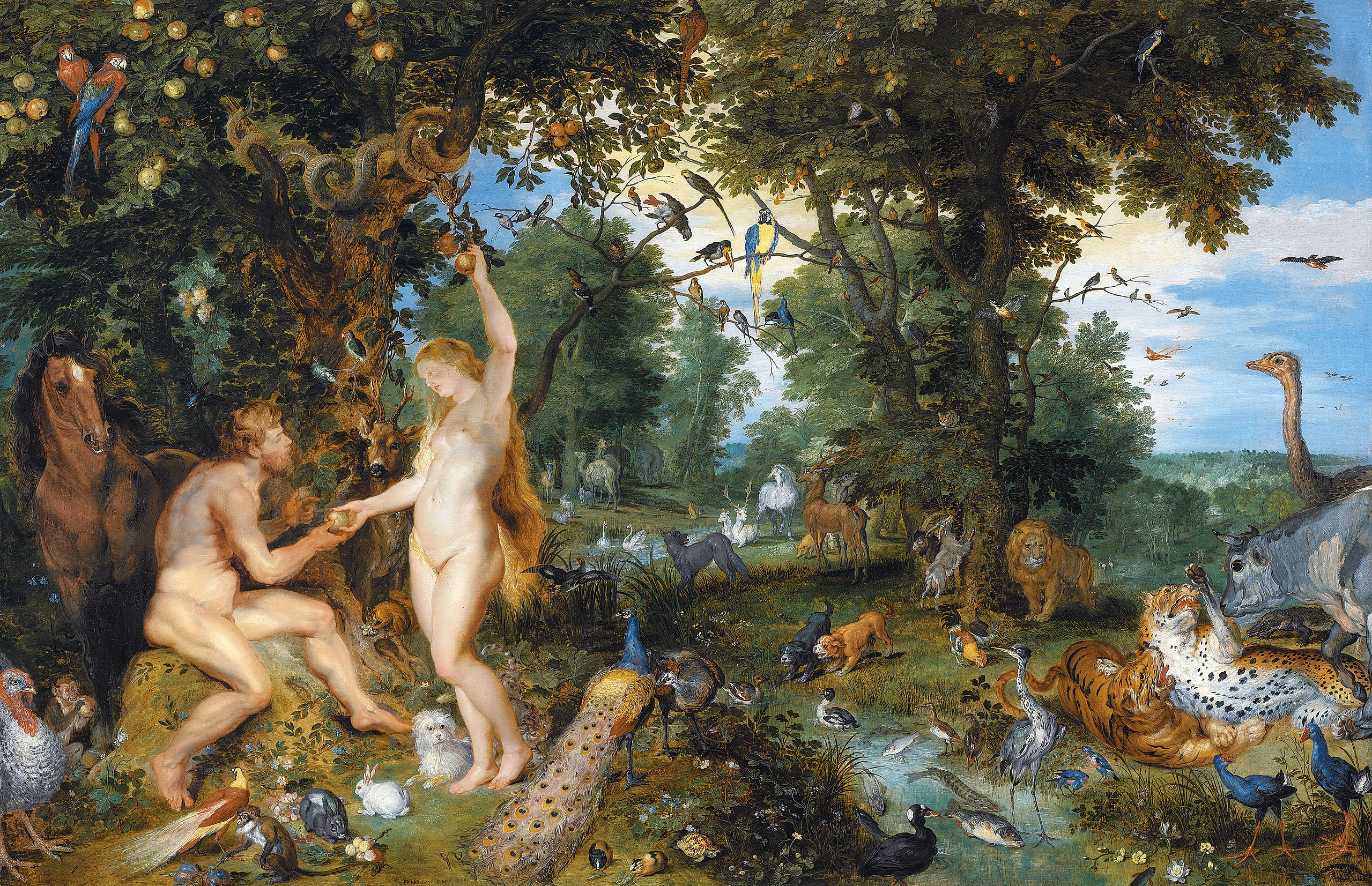The Greater Commission
And the man and his wife were both naked and were not ashamed. Genesis 2:25 NASB
Not ashamed – When you read this verse, what mental picture comes to mind? Something like this: (Rubens and Brueghel)?[1]

We grew up with the 17th century version of Eden, complete with Nordic men and women. Naked, of course, because that’s what the verse says. But the picture isn’t biblical at all, not just because it has a collection of animals that could never have shared the same habitat even if they were passive, but because being without clothes has nothing to do with this verse. “Naked and not ashamed” is a psychological condition, not a physical one. This is obvious when we look at the Hebrew term, bôš.
The primary meaning of this root is “to fall into disgrace, normally through failure, either of self or of an object of trust.” . . . The word is often paralleled with kālam “to be humiliated,” and less frequently with ḥātat “to be shattered, dismayed.” As these parallels suggest, the force of bôš is somewhat in contrast to the primary meaning of the English “to be ashamed,” in that the English stresses the inner attitude, the state of mind, while the Hebrew means “to come to shame” and stresses the sense of public disgrace, a physical state.[2]
If we put aside the fantasy paintings of the Garden and concentrate on the reality of a life without humiliation, disgrace, or dismay we immediately recognize that the innocence of the Garden is emotional, not physical. That stands in utter contrast to present human reality. “Shame is universal and one of the most primitive human emotions that we experience. The only people who don’t experience shame lack the capacity for empathy and human connection.”[3]
Brown gives us a working definition explaining why the Garden has such appeal.
Shame is the fear of disconnection. We are psychologically, emotionally, cognitively, and spiritually hard-wired for connection, love, and belonging. . . . “Shame is the intensely painful feeling or experience of believing that we are flawed and therefore unworthy of love and belonging.[4]
Now you understand. God made us for connection. Adam was alone not because he didn’t have company but because there was none like him for connection, and connection is what makes us human. Shame is losing that connection—and it’s unbearable! With this in mind, read carefully the results of Brown’s research on why men feel shame:
“I was not prepared to hear over and over from men how the women—the mothers, sisters, girlfriends, wives—in their lives are constantly criticizing them for not being open and vulnerable and intimate, all the while they are standing in front of that cramped wizard closet where their men are huddled inside, adjusting the curtain and making sure no one sees in and no one gets out. . . . Here’s the painful pattern that emerged from my research with men: We ask them to be vulnerable, we beg them to let us in, and we plead with them to tell us when they’re afraid, but the truth is that most women can’t stomach it. In those moments when real vulnerability happens in men, most of us recoil with fear and that fear manifests as everything from disappointment to disgust.”[5]
I would like to add something to the role of the ‘ezer kenegdo; something I missed in my book, Guardian Angel. The role of the ‘ezer kenegdo is to hear us and not turn away in disappointment or disgust; to hear what we men fear, what keeps us walled off, what makes us feel humiliated—and not leave. The role of the ‘ezer kenegdo is to have the stomach to take it. Please. We’re begging you.
Topical Index: Garden, shame, bôš, Brené Brown, Genesis 2:25
[1] Did you notice the impossible collection of animals?
[2] Oswalt, J. N. (1999). 222 בּוֹשׁ. R. L. Harris, G. L. Archer Jr., & B. K. Waltke (Eds.), Theological Wordbook of the Old Testament (electronic ed., p. 97). Chicago: Moody Press.
[3] Brené Brown, Daring Greatly, p. 68.
[4] Ibid., p. 69.
[5] Ibid., p. 95.



